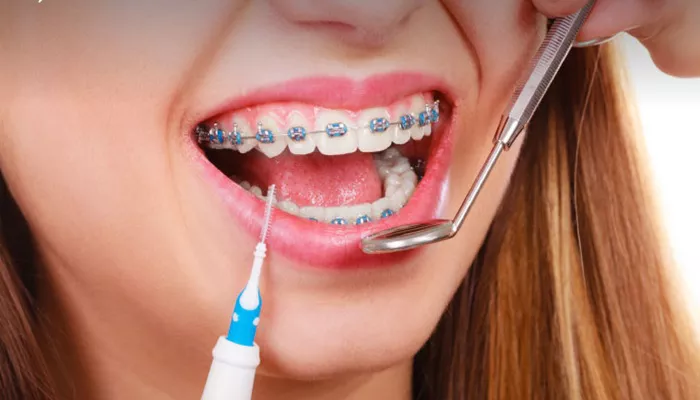Pregnancy is a critical time for a woman’s health, and maintaining optimal health during this period is essential. One area that often gets overlooked is oral health, particularly periodontal disease. This article will explore how periodontal disease can affect pregnancy, the potential risks involved, and the importance of good oral hygiene before and during pregnancy.
Whai Is Periodontal Disease?
Periodontal disease, commonly known as gum disease, is an inflammatory condition that affects the tissues surrounding the teeth. It ranges from mild gingivitis to more severe periodontitis. Gingivitis is characterized by swollen, red gums that may bleed when brushing or flossing. If left untreated, gingivitis can progress to periodontitis, where the inflammation can lead to the destruction of the supporting bone and tissues that hold teeth in place.
Causes of Periodontal Disease
The primary cause of periodontal disease is the accumulation of plaque, a sticky film of bacteria that forms on teeth. Other factors that contribute to its development include:
Poor oral hygiene: Inadequate brushing and flossing can lead to plaque buildup.
Hormonal changes: Pregnancy can increase sensitivity in the gums, making them more susceptible to inflammation.
Smoking: Tobacco use can impair gum health and immune function.
Nutritional deficiencies: A diet lacking in essential nutrients can weaken the immune system and make it harder for the body to fight infections.
The Connection Between Periodontal Disease And Pregnancy
Hormonal Changes
Pregnancy brings about significant hormonal changes, which can affect a woman’s oral health. Increased levels of hormones, such as progesterone, can enhance the inflammatory response to plaque, leading to more severe gum disease.
These changes may make pregnant women more susceptible to developing periodontal disease, even if they had previously maintained good oral health.
Effects on Pregnancy Outcomes
Research has indicated a strong link between periodontal disease and adverse pregnancy outcomes. Some potential effects include:
Preterm Birth: Studies have shown that women with periodontal disease are at a higher risk of preterm labor, which can result in babies being born before 37 weeks of gestation. Preterm birth can lead to a range of health issues for the baby, including low birth weight and developmental delays.
Low Birth Weight: Babies born to mothers with untreated periodontal disease are more likely to have low birth weight.
This condition can result from various factors, including nutritional deficiencies and the body’s inflammatory response to infection.
Preeclampsia: This pregnancy complication is characterized by high blood pressure and damage to organs, often the kidneys. Some studies suggest a connection between periodontal disease and an increased risk of developing preeclampsia, potentially due to the body’s inflammatory response.
Gestational Diabetes: While the relationship is still being studied, some evidence suggests that periodontal disease may contribute to an increased risk of gestational diabetes, which can affect both the mother and the baby’s health.
Potential Mechanisms of Action
The exact mechanisms through which periodontal disease affects pregnancy outcomes are not entirely understood, but several theories exist:
Inflammatory Mediators: The bacteria in periodontal disease can enter the bloodstream, leading to systemic inflammation. This inflammation may affect placental health and fetal development.
Hormonal Factors: Hormonal changes during pregnancy can exacerbate the inflammatory response to periodontal disease, potentially worsening its effects.
Nutritional Impact: Periodontal disease can make it painful to eat, leading to poor nutrition, which is critical during pregnancy for both the mother and developing fetus.
Symptoms of Periodontal Disease During Pregnancy
Pregnant women should be aware of the following symptoms of periodontal disease:
Swollen or puffy gums: Gums may appear redder than normal and may bleed during brushing or flossing.
Bad breath: Persistent bad breath may indicate gum disease.
Receding gums: Gums may pull away from teeth, exposing more of the tooth structure.
Loose teeth: In advanced cases, teeth may become loose or shift position.
Importance of Oral Hygiene During Pregnancy
Maintaining good oral hygiene is crucial during pregnancy. Here are some tips for pregnant women to protect their oral health:
Regular Dental Checkups
Pregnant women should schedule dental checkups at least twice a year. Early detection and treatment of periodontal disease can prevent complications. It’s important to inform the dentist about the pregnancy, as certain procedures and medications may need to be adjusted.
Daily Oral Care Routine
A proper oral care routine includes:
Brushing Twice Daily: Use a fluoride toothpaste to brush teeth for at least two minutes, twice a day.
Flossing Daily: Flossing removes plaque and food particles between teeth and along the gum line.
Using Mouthwash: An antibacterial mouthwash can help reduce plaque and bacteria in the mouth.
Nutritional Considerations
A well-balanced diet rich in vitamins and minerals is essential for both oral and overall health. Key nutrients for healthy gums include:
Vitamin C: Supports gum health and healing. Sources include citrus fruits, strawberries, and bell peppers.
Calcium: Essential for healthy teeth and bones. Sources include dairy products, leafy greens, and fortified foods.
Vitamin D: Aids in calcium absorption. Sources include fatty fish, fortified dairy products, and sunlight.
Treatment of Periodontal Disease During Pregnancy
If periodontal disease is diagnosed during pregnancy, it is crucial to seek treatment promptly. The treatment may include:
Professional Cleaning: A dental hygienist can perform a thorough cleaning to remove plaque and tartar buildup.
Scaling and Root Planing: In more severe cases, a deep cleaning procedure may be necessary to clean below the gum line.
Antibiotics: Depending on the severity of the infection, the dentist may prescribe antibiotics that are safe for use during pregnancy.
Continued Care: Regular follow-ups may be required to monitor gum health throughout the pregnancy.
Conclusion
Periodontal disease can significantly impact pregnancy outcomes and maternal health. Pregnant women must prioritize their oral health by maintaining good hygiene practices, attending regular dental checkups, and seeking treatment when necessary. By doing so, they can help minimize the risks associated with periodontal disease and contribute to a healthier pregnancy.
Related topics:

